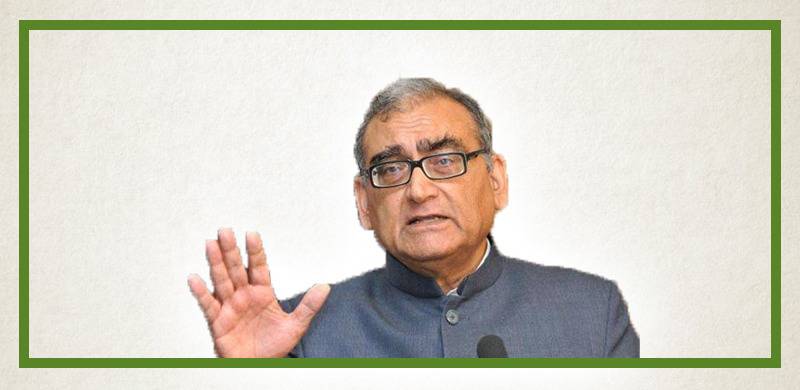
Justice Markandey Katju writes about the sham process through which police in India obtain confessions from 'criminals'. The calls for 'speedy trial' often lead to travesties of justice.
The Priyanka Reddy rape-cum-murder case of Hyderabad, has outraged many people all over India, who are demanding a swift trial and death sentence on the perpetrators of this heinous crime. I too am enraged and would like swift and harsh sentence on the culprits. The question, however, is: Who are the real culprits?
It is said that the 4 persons arrested have confessed to the crime. I have been in the legal world for 40 years, 20 years as a lawyer and 20 years as a Judge, and I would like to say frankly that I have no faith in confessions. Torture is such a terrible thing that one will confess to anything under torture. Joan of Arc confessed to be a witch under torture.
There are certain things I would like to tell the Indian people about how crimes are often ‘solved’ in India:
In India, on the other hand, most policemen are neither trained in scientific investigation, nor do they have the scientific equipment for the same, and yet they are often put under pressure to solve the crime. They fear they may be suspended if they don’t. So what do they do? They take recourse to the time tested method of torture, after arresting someone on mere suspicion. Often false evidence is also fabricated.
Suppose a robbery takes place in a village. Now the police daroga (sub inspector) does not know how to scientifically investigate and solve the crime (because he has not been trained in it, nor provided the equipment for it). So he asks some people of the locality: “Who does these kinds of crimes? “. Someone names Kallu, so Kallu is caught hold of, and tortured until he confesses. This is how the crime is ‘solved’.
The Priyanka Reddy rape-cum-murder case of Hyderabad, has outraged many people all over India, who are demanding a swift trial and death sentence on the perpetrators of this heinous crime. I too am enraged and would like swift and harsh sentence on the culprits. The question, however, is: Who are the real culprits?
It is said that the 4 persons arrested have confessed to the crime. I have been in the legal world for 40 years, 20 years as a lawyer and 20 years as a Judge, and I would like to say frankly that I have no faith in confessions. Torture is such a terrible thing that one will confess to anything under torture. Joan of Arc confessed to be a witch under torture.
There are certain things I would like to tell the Indian people about how crimes are often ‘solved’ in India:
- Criminal investigation is a science, as one learns from the stories of Sherlock Holmes. In Discovery Channel, one can see how crimes are solved in America. The police goes to the spot, collects fingerprints, bloodstains, fibers, ashes, firearms evidence, knives etc, and these are taken to a scientific laboratory for examination. The fingerprints are put in a national computer network to trace out whether the person has a criminal background. DNA tests of semen, bloodstains etc are often of great help in identifying the criminal, e.g. in the case of Gary Ridgway, the Green Valley serial killer. Teethmarks on decomposed bodies can help in identifying the criminal, as in the case of the serial killer Ted Bundy.
In India, on the other hand, most policemen are neither trained in scientific investigation, nor do they have the scientific equipment for the same, and yet they are often put under pressure to solve the crime. They fear they may be suspended if they don’t. So what do they do? They take recourse to the time tested method of torture, after arresting someone on mere suspicion. Often false evidence is also fabricated.
Suppose a robbery takes place in a village. Now the police daroga (sub inspector) does not know how to scientifically investigate and solve the crime (because he has not been trained in it, nor provided the equipment for it). So he asks some people of the locality: “Who does these kinds of crimes? “. Someone names Kallu, so Kallu is caught hold of, and tortured until he confesses. This is how the crime is ‘solved’.
- In criminal trials in India nowadays, it is almost impossible to obtain independent witnesses. This is because even if one has seen a crime he will not inform the police out of (1) fear of attack by the culprits, and (2) fear of being dragged into a lengthy court proceeding where his presence may be required on several dates. So to get a conviction the police often must get false witnesses.
- As regards close relatives of the victim who are willing to testify, they may also give false evidence after being coached by the police. This they often do because in their burning desire for revenge, they want a conviction, and they are not too much bothered whether the person convicted is really guilty or not. The police say he is guilty, and that is the end of the matter.I request the public to keep all this in mind before demanding swift trial and death sentence to the 4 accused. Emotions are running high at the moment, so it is time for people, who are presently baying for blood, to cool down, and do some rational thinking. When emotions rise high, often injustice follows, as illustrated by Shakespeare in his play Julius Caesar, in which the hysterical Roman mob demands hanging of Cinna the poet despite his pleading that he is not Cinna the conspirator.
